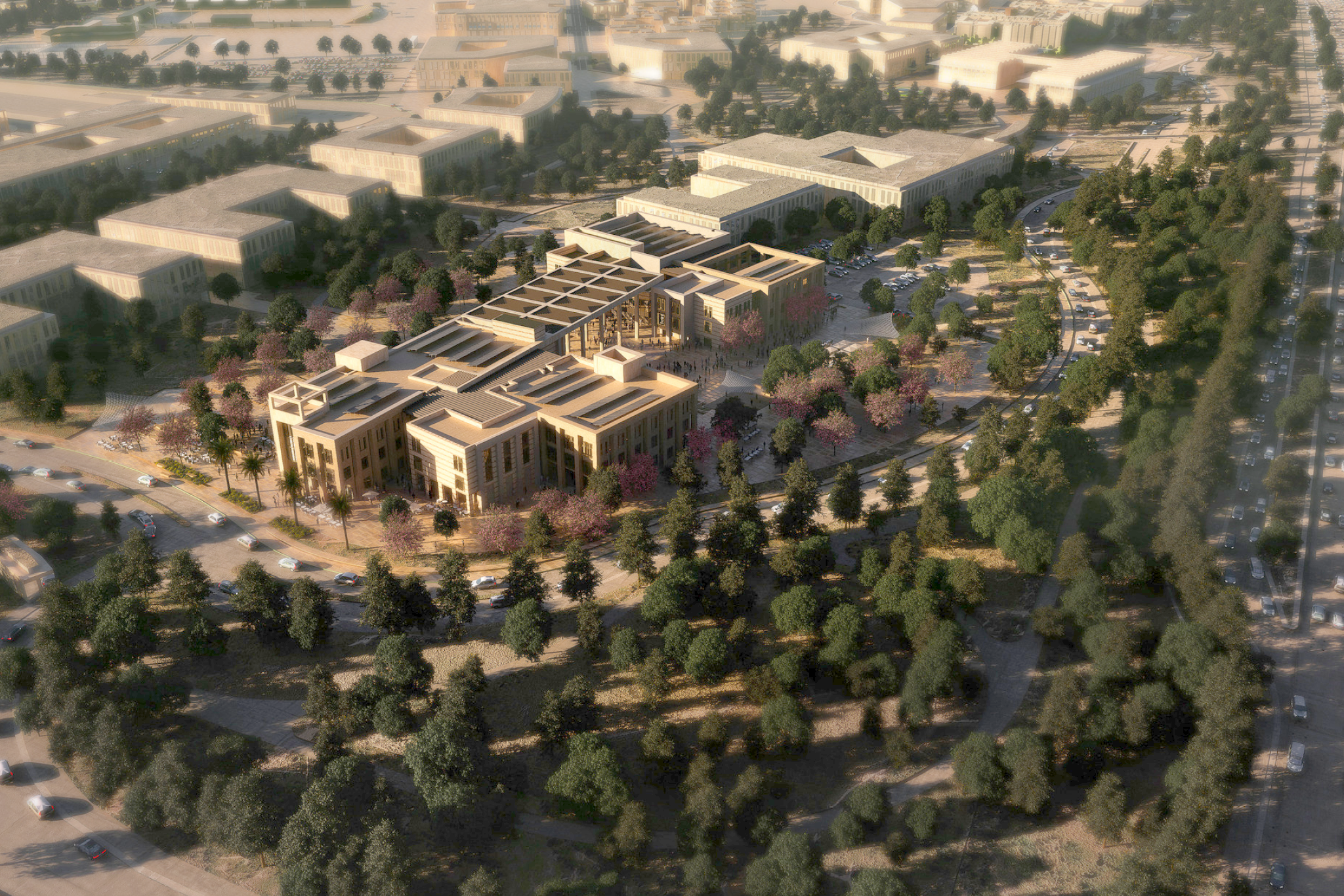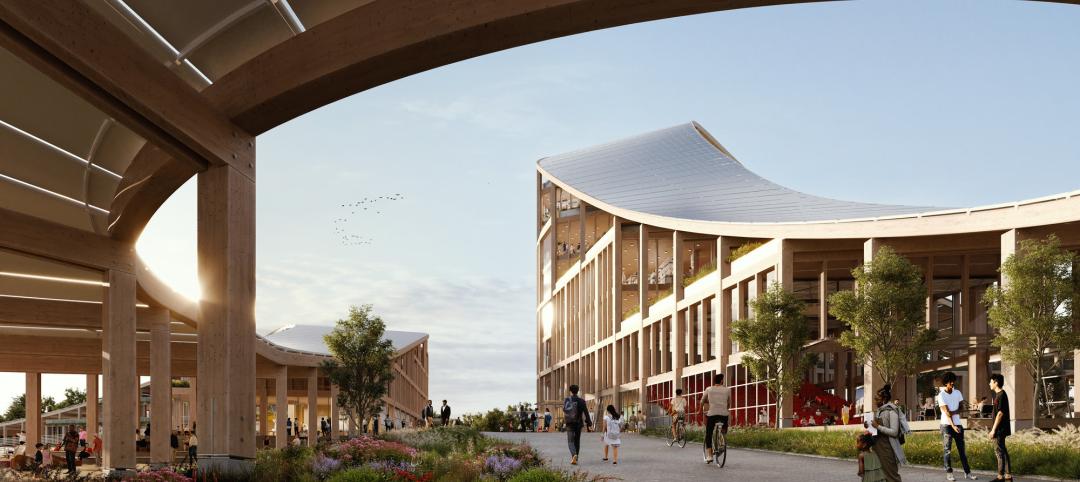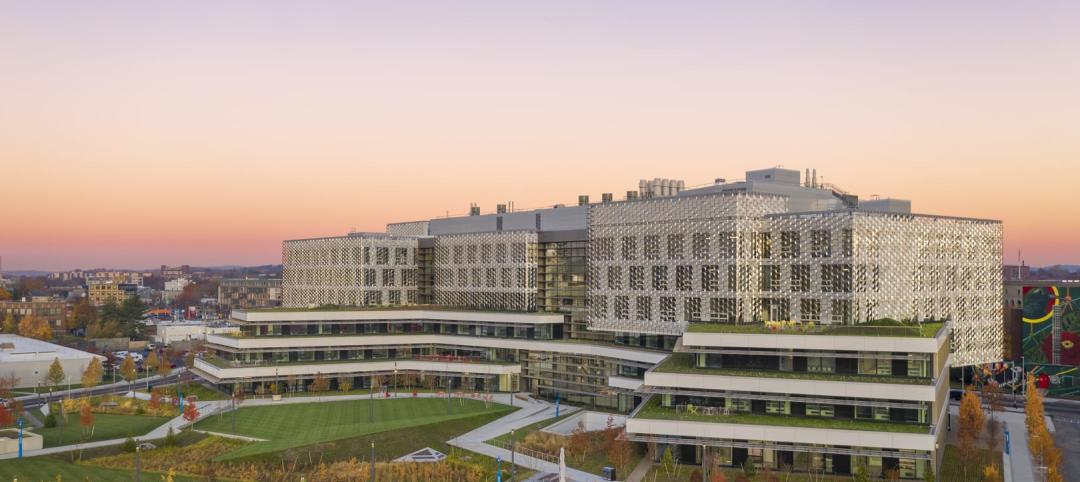In New Cairo, Egypt, The American University in Cairo (AUC) has broken ground on a roughly 270,000-sf expansion of its campus. The project encompasses two new buildings intended to enhance the physical campus and support AUC’s mission to provide top-tier education and research.
Designed by DLR Group, the AUC campus expansion project includes sustainable, state-of-the-art elements while preserving the character of the New Cairo campus.
The 146,970-sf Extended Education Hub offers classrooms, executive education areas, general spaces, and essential basement support spaces, in addition to rooftop gardens and a 450-seat auditorium. Featuring courtyards and landscaped pathways, the design aims to promote an interactive learning community, drawing inspiration from street bazaars and narrow alleys that open to larger, unexpected social spaces in Cairo.
The Extended Education Hub’s natural elements include a tranquil reflecting pool that provides evaporative cooling. Outside, trellises and canopies create designated areas for outdoor classrooms, gatherings, and leisure.
The 123,795-sf NextGen Student Living and Learning Spaces emphasize holistic student wellness and community building. It enables student connections via cafes, co-working spaces, prayer rooms, music rooms, and spacious living areas. Accommodating 300 beds, the project also features kitchens where students can cook and interact, as well as a garden-level basement. The residential interiors’ neutral palette allows students to express their personal identity through their furnishings, rugs, and art.
“Our design for two new buildings within the expanded AUC campus footprint fosters curiosity and innovative thinking within a cross-cultural environment,” Stu Rothenberger, DLR Group senior principal and global higher education leader, said in a statement. “Integrating sustainable design principles and supporting a stimulating learning environment that extends beyond the four walls of the classroom, this project will have a significant impact on the region and continue AUC’s inspiring legacy of elevating higher education in the world.”
Construction of the two university buildings is slated for completion by the end of 2026.
On the Building Team:
Owner: The American University in Cairo
Design architect: DLR Group
Architect of record, MEP engineer, and structural engineer: EHAF Consulting Engineers
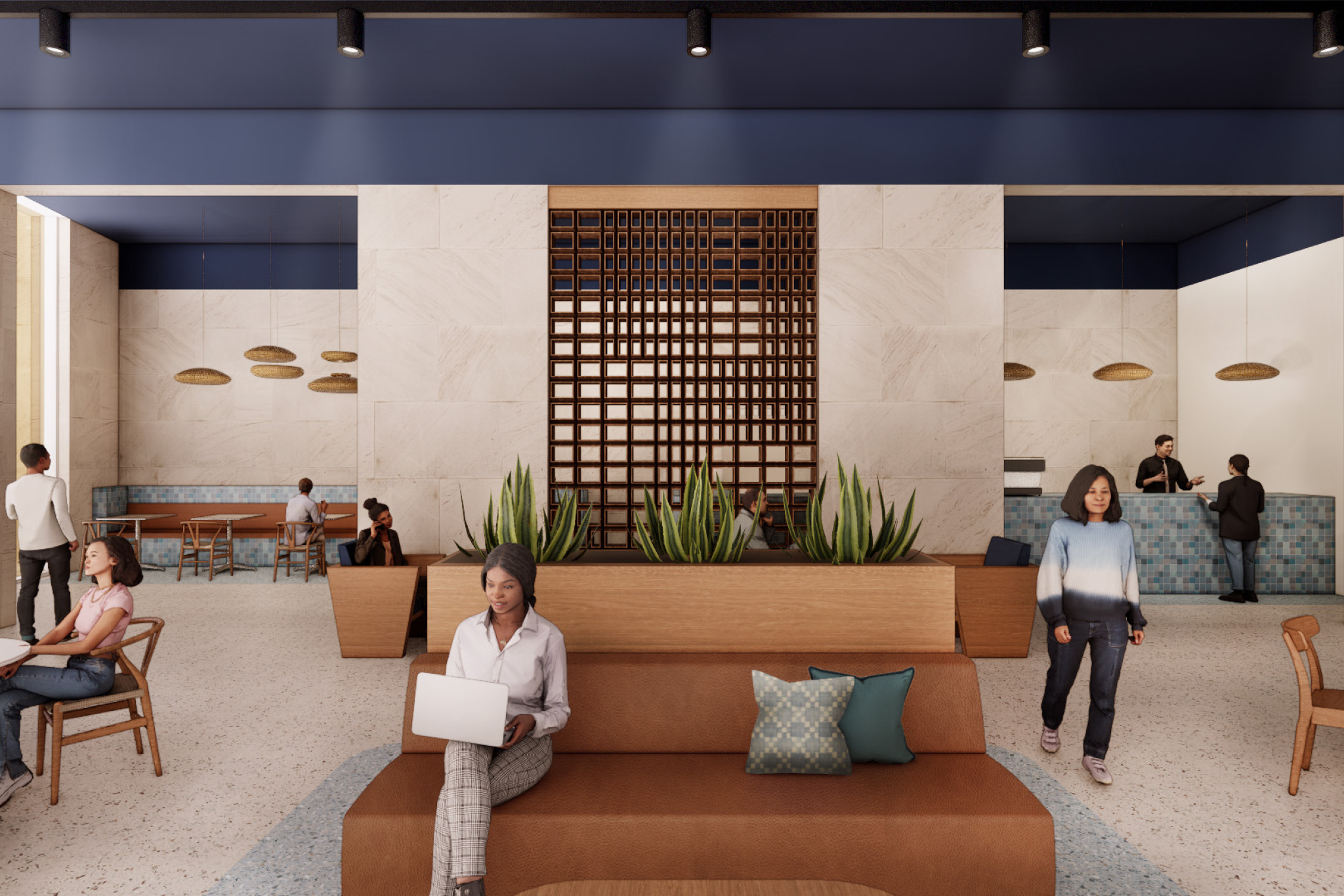
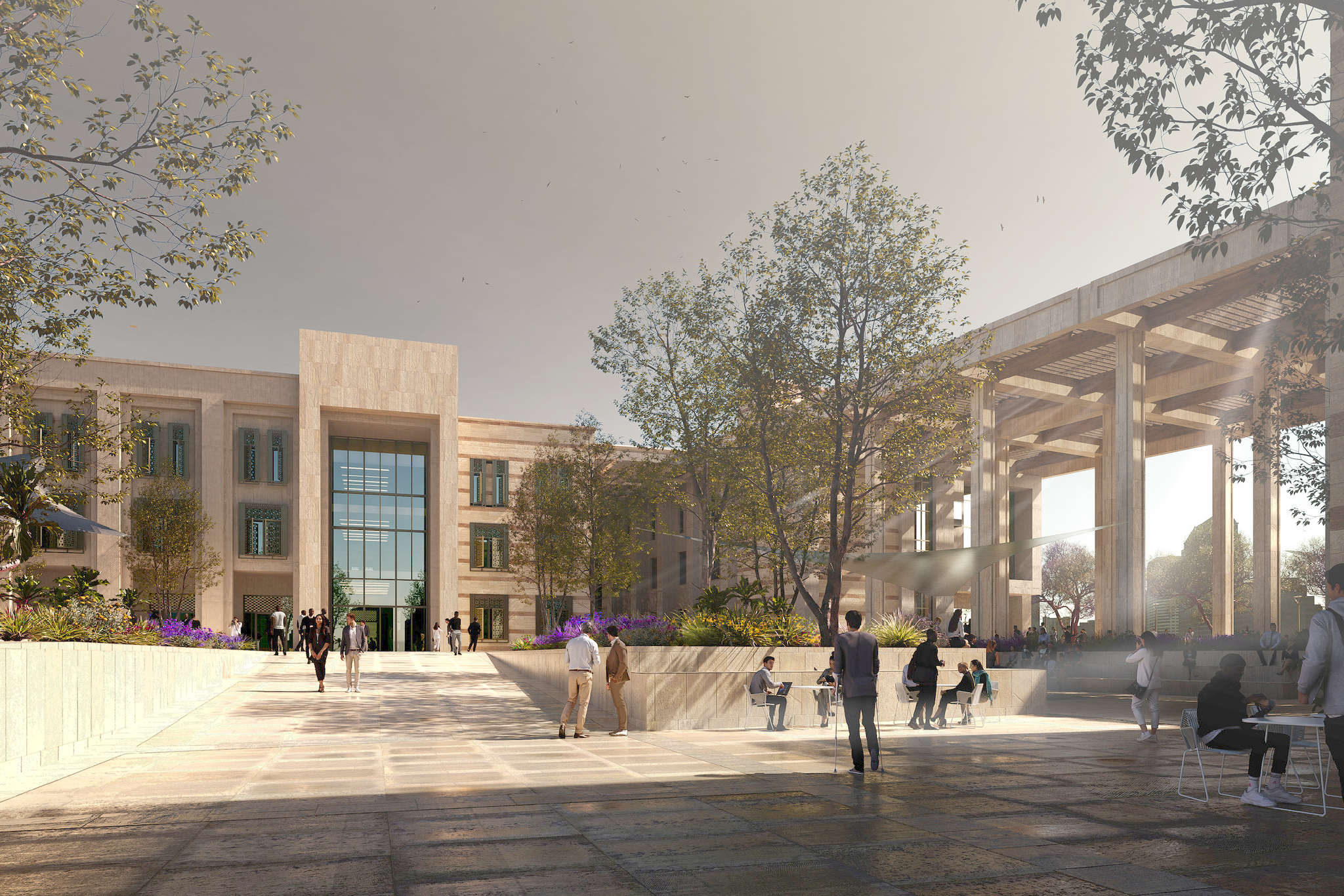
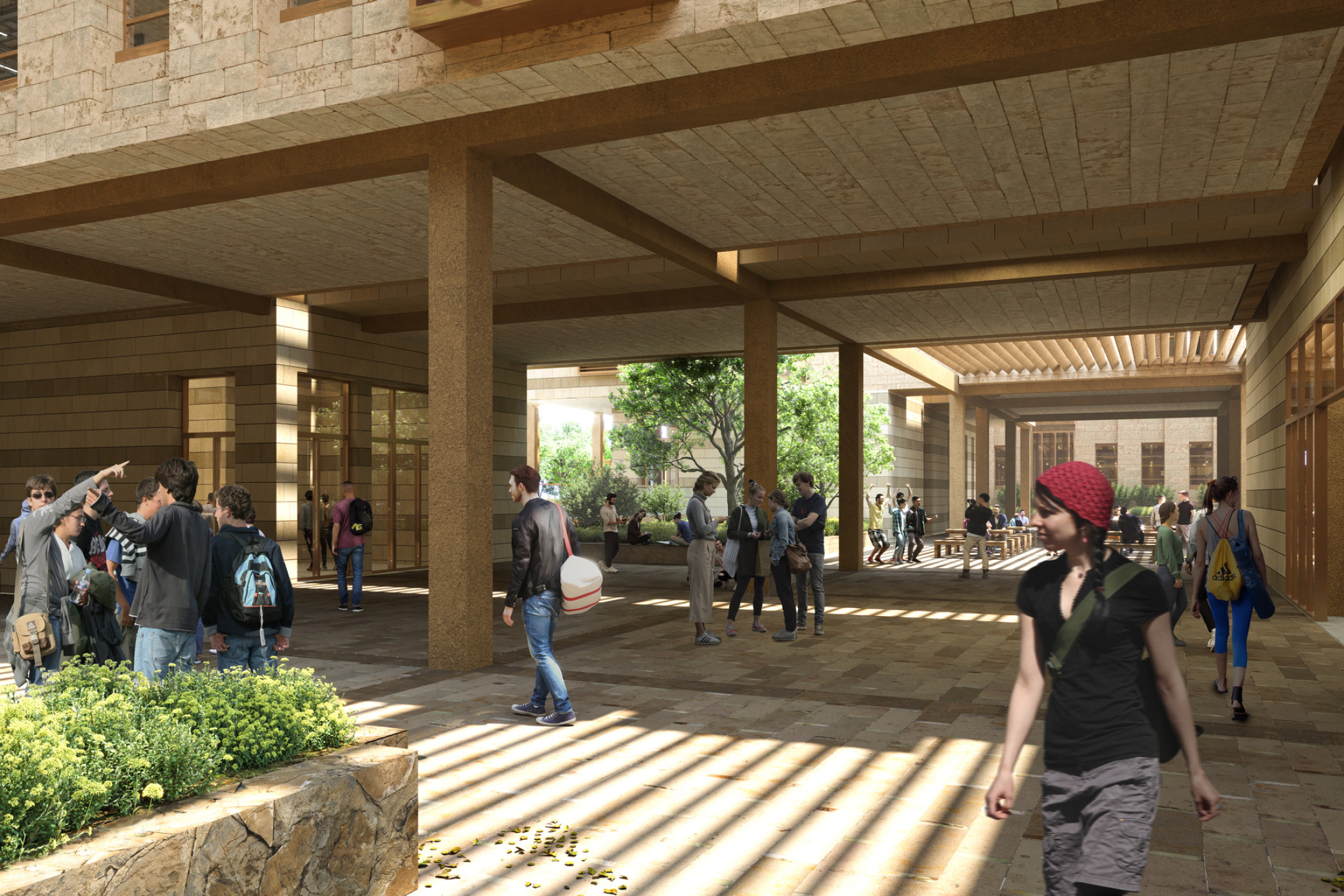
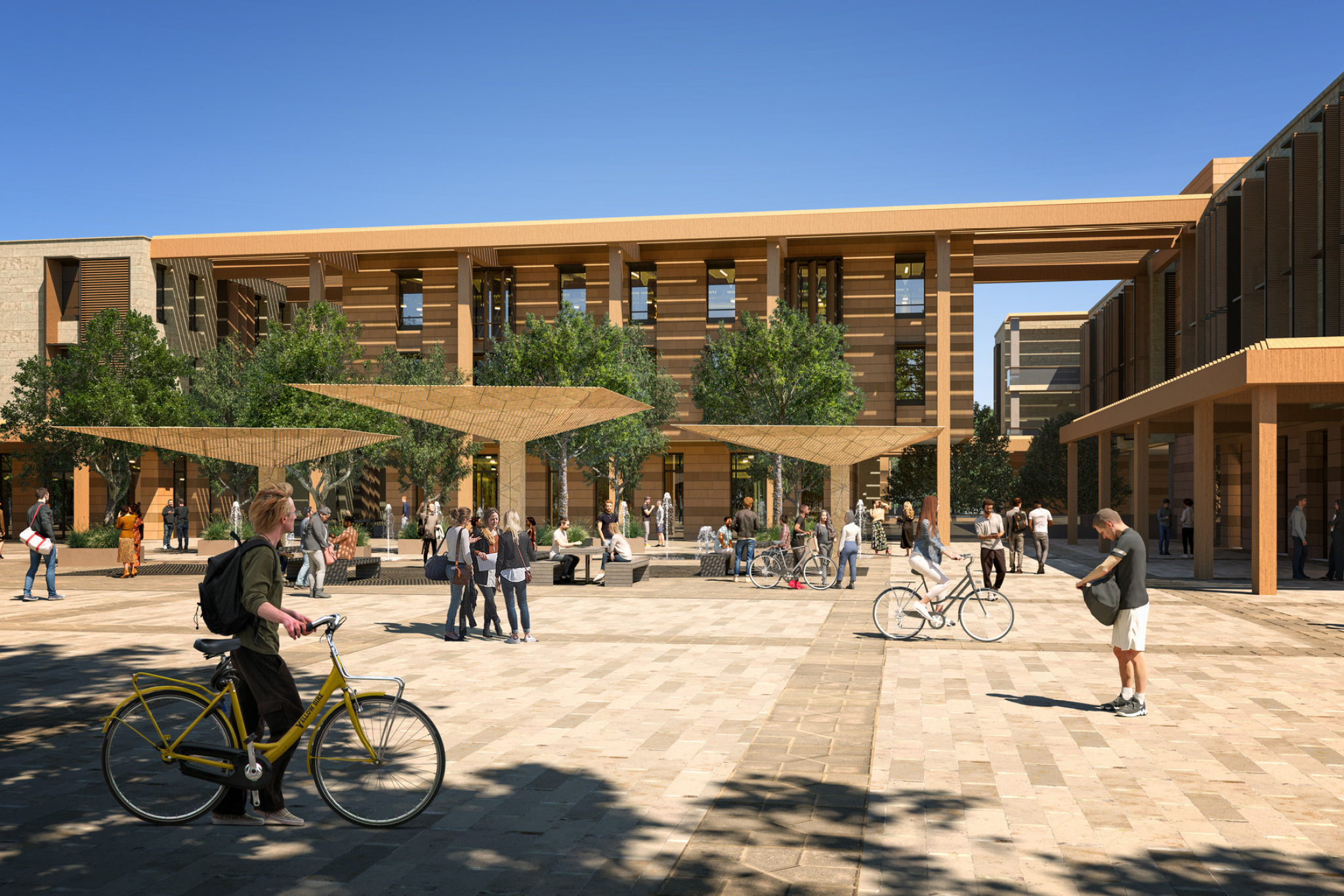
Related Stories
Mass Timber | May 1, 2023
SOM designs mass timber climate solutions center on Governors Island, anchored by Stony Brook University
Governors Island in New York Harbor will be home to a new climate-solutions center called The New York Climate Exchange. Designed by Skidmore, Owings & Merrill (SOM), The Exchange will develop and deploy solutions to the global climate crisis while also acting as a regional hub for the green economy. New York’s Stony Brook University will serve as the center’s anchor institution.
University Buildings | Apr 24, 2023
Solving complicated research questions in interdisciplinary facilities
University and life science project owners should consider the value of more collaborative building methods, close collaboration with end users, and the benefits of partners who can leverage sector-specific knowledge to their advantage.
Green | Apr 21, 2023
Top 10 green building projects for 2023
The Harvard University Science and Engineering Complex in Boston and the Westwood Hills Nature Center in St. Louis are among the AIA COTE Top Ten Awards honorees for 2023.
Higher Education | Apr 13, 2023
Higher education construction costs for 2023
Fresh data from Gordian breaks down the average cost per square foot for a two-story college classroom building across 10 U.S. cities.
Market Data | Apr 11, 2023
Construction crane count reaches all-time high in Q1 2023
Toronto, Seattle, Los Angeles, and Denver top the list of U.S/Canadian cities with the greatest number of fixed cranes on construction sites, according to Rider Levett Bucknall's RLB Crane Index for North America for Q1 2023.
University Buildings | Apr 11, 2023
Supersizing higher education: Tracking the rise of mega buildings on university campuses
Mega buildings on higher education campuses aren’t unusual. But what has been different lately is the sheer number of supersized projects that have been in the works over the last 12–15 months.
Contractors | Apr 10, 2023
What makes prefabrication work? Factors every construction project should consider
There are many factors requiring careful consideration when determining whether a project is a good fit for prefabrication. JE Dunn’s Brian Burkett breaks down the most important considerations.
Smart Buildings | Apr 7, 2023
Carnegie Mellon University's research on advanced building sensors provokes heated controversy
A research project to test next-generation building sensors at Carnegie Mellon University provoked intense debate over the privacy implications of widespread deployment of the devices in a new 90,000-sf building. The light-switch-size devices, capable of measuring 12 types of data including motion and sound, were mounted in more than 300 locations throughout the building.
Architects | Apr 6, 2023
New tool from Perkins&Will will make public health data more accessible to designers and architects
Called PRECEDE, the dashboard is an open-source tool developed by Perkins&Will that draws on federal data to identify and assess community health priorities within the U.S. by location. The firm was recently awarded a $30,000 ASID Foundation Grant to enhance the tool.
Architects | Apr 6, 2023
Design for belonging: An introduction to inclusive design
The foundation of modern, formalized inclusive design can be traced back to the Americans with Disabilities Act (ADA) in 1990. The movement has developed beyond the simple rules outlined by ADA regulations resulting in features like mothers’ rooms, prayer rooms, and inclusive restrooms.


